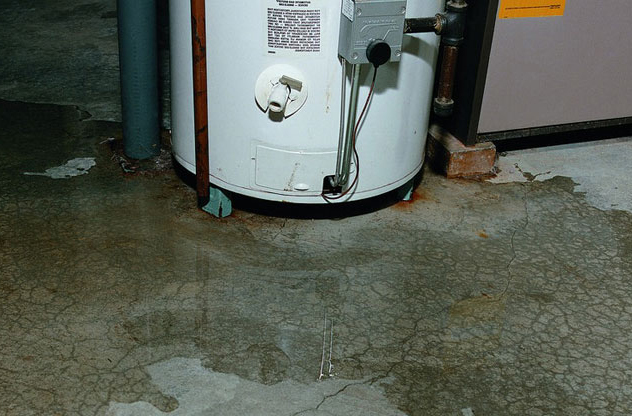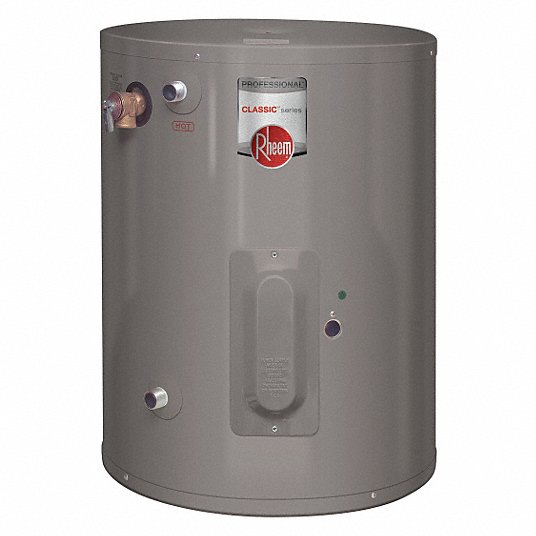Key Protocols for Residential Property Owners Dealing with Problems with Malfunctioning Hot Water Systems
Key Protocols for Residential Property Owners Dealing with Problems with Malfunctioning Hot Water Systems
Blog Article
We have noticed the article involving What Do You Do When Your Water Heater Bursts? directly below on the web and figured it made perfect sense to talk about it with you on my blog.

Whether it lies in the cellar or a different area, busted hot water heater can create stress. A standard unit holds 80 gallons, so an over night leakage will certainly cause a flood. This results in major property damages with drenched walls and floorings. Having no hot water supply is additionally troublesome. If you are managing these problems, take note of the following:
Shut Off Source Of Power
Prior to calling the plumber, turned off a gas water heater by turning the temperature dial. This is generally found at the top of the thermostat. Switch off the circuit breaker if you have a version that runs on electric power. This will protect against electrocution, particularly if there is a leakage as water is a conductor. Generally, the heating element shuts down when the water strikes a specific temperature. With a broken storage tank, it might malfunction. Sufficing off guarantees you stay secure.
Cut Off the Cold Water Supply
Cut off the containers faucet water supply from the resource. This goes from your major water line right into the storage tank. When your container is in good condition, the cold water stops filling up when the tank is complete. However since it is leaking, the water will certainly remain to flow. Shut the valve located at the top of the heating unit. Revolve this clockwise to shut it off. If you can not locate it or reach it, you must shut off that major supply of water line outside your property.
Call the Plumber
After doing the first two safety and security actions, you need to call your plumber ahead right away to fix a burst hot water heater. Remember that your device will not simply conk out drastically overnight. There are normally indications that your aging water heater has debris buildup in the inside. Remember of the following:
Do not await major flooding to call the plumber. By then, you will certainly need to invest even more to recover your residential or commercial property. Instead, as soon as you find these indications, have an expert concerned examine your water heater give thanks to. Generally, hot water heater have a life-span of concerning 8 to 12 years. With regular inspection and also upkeep, you can prolong its life.
Tidy up Residential property
After calling the plumber, paper damage by making note as well as images so you can declare your homeowner's insurance coverage. From there, begin the instant cleaning. Take out any type of vital personal belongings to stop further soaking. Remove any standing water to avoid mold and mildew as well as mold development. If you have a completely submersible water pump, make use of that to drain pipes the water. Or else, the standard pail approach will certainly additionally function. Attempt to mop out whatever, including wall surfaces as well as walls. If you have an electric fan and dehumidifier, maintain them running to maintain air distributing. This will certainly aid discourage mold and mildew development.
Remember, if you discover any type of concerns with your water heater, call the pros right away. You can not take this trouble gently since a defective thermostat can elevate water temp to a precariously high degree, leading to unintentional burns.
Whether it is situated in the cellar or a different area, broken water heaters can trigger anxiety. Prior to calling the plumber, closed off a gas water heating system by transforming the temperature level dial. After doing the initial 2 safety and security actions, you need to call your plumber to come right away to deal with a ruptured water heating unit. If you have a submersible water pump, utilize that to drain the water. Bear in mind, if you see any issues with your water heating unit, call the pros right away.
Is My Water Heater Broken?
The Water Heater is Old
No appliance will last forever. This includes a home’s water heater. During its lifespan, residents are going to face a situation where a new water heater installation will be necessary. The biggest problem with this is that most people are not sure when their water heater expires. Not knowing this can lead to serious risks if the unit begins to act up due to old age.
Most makes and models of water heaters will last between eight and 10 years. While 10 years is the age when water heater replacement is highly recommended, the need to replace the unit may occur before this time or after. If the unit doesn’t show any symptoms of a problem, it is a good idea to replace it at the 10-year mark (from the manufacture date).
Some of the symptoms that indicate a new unit is needed include rusting, leaks, noises, and a failure to heat up the water. Also, note that not all units have a 10-year life expectancy. The main exception to this rule is that a gas unit will last for six to eight years.
Rusty Heater Inlet Valve or Water
While steel is the strongest material on earth, it does have a weakness – rust. If corrosion occurs on a steel surface, it will begin to spread and eat through the steel in certain areas. On water tanks and pipes that are made of steel, rust is a warning sign of an impending leak.
The issue for many is trying to figure out if the rust is coming from the water heater or the pipes that lead to the faucet. If rust is seen, it is a clear indication that water heater service from the professionals is needed.
If rusty water appears out of the faucets in the bathtub or sink, it likely means a rusty water heater. If there is rust near the water inlet or the pressure relief valve, rust has likely developed inside the tank. If tap water appears rusty, it may be an issue with the pipes.
Strange Sounds from the Water Heater
Are there strange sounds coming from the tank? As a water heater gets older, rumbling noises may develop and get louder and louder as the water in the tank heats up. In homes where large amounts of hot water are used, the issue is likely going to be even more obvious when more serious issues arise. If there is a strange or loud noise coming from the unit, it is probably because of sediment buildup. A good way to remedy this problem is by flushing the heater. If this does not work, then a new unit may need to be installed.
Leaks
As a water heater gets closer to the end of its useful life, there is a higher chance there will be water around the tank. If there is water, this usually means leaks are occurring. Based on where the unit is located in the home, a leak may result in serious property damage.
Leaks are usually caused by expansions in the metal tank. The expansions occur as time passes and as the inside body of the tank is exposed to multiple heating cycles per day. When a fracture forms, the gap will be slight enough to hold the water in; however, in more serious situations, this will not be the case. If the tank is idle, the water will not leak but when the metal expands during each heating system, small amounts of water will get through the gap.

Do you enjoy reading up on Water Heater Repair? Make a short review down the page. We will be delighted to hear your responses about this review. In hopes to see you back again before long. Are you aware of anybody else who is inquisitive about the niche? Do not hesitate to share it. Thanks for your time spent reading it.
Book Report this page